It's 2023 West African Countries Statistically Are Some Of The Worst Countries To Be Female
Why aren't things progressing in these countries for women?
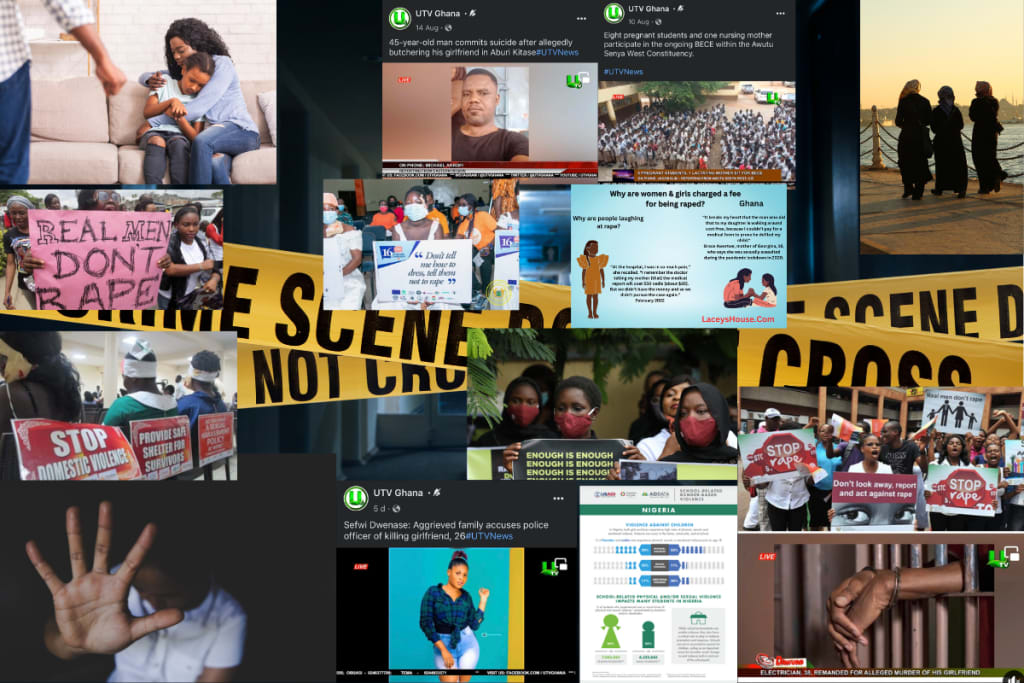
Wednesday, 23 August 2023
By: TB Obwoge
According to the 2023 statistics on the gender gap rankings, West African countries are not doing justice to women and girls. According to the news reports on gender-based violence, pedophilia, femicide, child abuse, rape and sexual assaults these countries are also failing women.
Countries like Saudi Arabia and other Arab countries are making small strides in the way women are treated. However it seems many West African countries are lacking and they're also not reporting the statistics on rape, femicides, child abuse, gender-based violence and spousal abuse.
In Nigeria 95% of government officials are males, there have even been reports of women in politics having their lives threatened in Nigeria, Sierra Leone and Ghana.
There are 146 countries ranked, they're given numbers from 1 to 146 according to the best and most progressive within the gender gap from male to female. Nigeria is ranked 130 out of 146 Afghanistan which is ruled by the Taliban, which is an Islamic fundamentalist group.
The Global Gender Gap score in 2023 for all 146 countries included in this edition stands at 68.4% closed. Considering the constant sample of 145 countries covered in the 2022 and 2023 editions, the overall score changed from 68.1% to 68.4%, an improvement of 0.3 percentage points compared to last year’s edition. When considering the 102 countries covered continuously from 2006 to 2023, the gap is 68.6% closed.
Compared to last year, progress towards narrowing the gender gap has been more widespread: 42 of the 145 economies covered in both the 2022 and 2023 editions improved their gender parity score by at least 1 percentage point since the previous edition and 40 other countries registered gains of less than 1 percentage point.
The economies with the greatest increase in score (gains of 4 percentage points or more) are Liberia (score: 76%, +5.1 percentage points since the previous edition), Estonia (78.2%, +4.8 percentage points), Bhutan (68.2%, +4.5 percentage points), Malawi (67.6%, +4.4 percentage points), Colombia (75.1%, +4.1 percentage points) and Chile (77.7%, +4.1 percentage points).

Ghana - 100 out of 146
Ghana has strengthened women’s legal rights and opportunities in the labor market and women are now participating in the labor market at higher rates (65%) compared to other SSA countries (63%). This positive trend however has not translated into better economic opportunities for all women.
Women are more vulnerable in the labor market as their employment is precarious: 77% of women are in vulnerable jobs compared to 58% of men. Likewise, rural women are mostly self-employed and earn less due to the informality of their work. Women often choose self-employment to balance income generation with childcare and other domestic tasks, and this prohibits them from working in the formal sector and getting high-pay jobs to improve their livelihoods.In addition to facing barriers that put women in low-earning jobs mostly in the informal agriculture sector, a vast majority of women-owned businesses lack access to fundamental assets to improve their productivity for higher revenues.
Limited access to land, and other productive assets exacerbates women’s financial exclusion as they are unable to use property as collateral. Although the law protects women’s property rights and ownership, restrictive social norms restrict their right to own and use property. About 8% of women own land compared to 30% of men.
Women and girls are less likely to participate in decision-making
Women’s inclusion into decision-making processes in Ghana is still low . They represent only 15% in national parliament and management positions in the private sector include only 27% women.
Gender-based violence continues to be high in Ghana. The most common forms of domestic violence reported by women were economic violence (13%), social violence (12%), psychological violence (9%), physical violence (6%), and sexual violence (3%). Furthermore, women and girls with disabilities are twice more likely to have experienced sexual or physical violence. Women with disabilities are more likely to be physically dependent on an intimate partner, be poorer, have less education, and be seen as more vulnerable by that partner.
Social norms drive these gender gaps. Social norms are sets of informal rules that shape the attitudes, behaviors, and roles of women and men in society. These norms continue to limit Ghanaian women’s access to and use of opportunities at the same rate as men and boys and further exclude them from social and economic empowerment.
Despite what this WorldBank blog contains, it doesn't account for the recent onslaught of cases of femicide in Ghana taking place in 2023. Also there are little to no statistics on rape in Ghana because women and girls are still being charged 'rape fees', which means in order to file a police report the of a rape, girls and women are being asked for money from hospitals.
Most are unable to pay for these rape examinations, some claim the fees are more than one months salary. Women are also saying that the fee prices change depending on which hospitals they go to. There also seems to be a strong, engrained fear of Ghanian women to report rape cases.
I was only a resident of Ghana and I was sexually assaulted by a police officer in the East Legon police station. When I reported the case to the man second to Ghana's IGP and to the head of CID in 2021, my case was ignored. No one seems to care even though I have reported it and written about it, no one seems to care.
Also in many parts of Africa, including East Africa, women are accused of being Witches and murdered. Ghana and Nigeria have had several cases even in 2022 & 2023.
Nigeria - 130 out of 146
Section 6. Discrimination and Societal Abuses
WOMEN
Rape and Domestic Violence: The law criminalizes rape of women and domestic violence, but not rape of men. Spousal rape is not criminalized. The government did not effectively enforce the law.
Sentences for persons convicted of rape and sexual assault were inconsistent and often minor. Federal law provides penalties ranging from 12 years to life imprisonment for offenders older than 14 and a maximum of 14 years’ imprisonment for offenders aged 14 and younger. It also provides for a public register of convicted sexual offenders and appointment of protection officers at the local government level to coordinate with courts and provide for survivors to receive various forms of assistance (e.g., medical, psychosocial, legal, rehabilitative, and for reintegration) provided by the law.
The law also includes provisions to protect the identity of rape survivors and empower courts to award appropriate compensation to survivors. Because the relevant federal law had not been adopted in all states, state law continued to govern most rape and sexual assault cases and typically allowed for lesser sentences. While some, mostly southern, states enacted laws prohibiting some forms of gender-based violence or sought to safeguard certain rights, most states did not have such legislation. Survivors generally had little or no recourse to justice.
Global Gender Gap Report 2023
Senegal - 104 out of 146
Senegal’s women need to express their anger. Silence is the friend of injustice
Senegal’s women need to express their anger. Silence is the friend of injustice
Over the past 12 years, Senegalese women have made great strides in politics. In July’s elections, women won 73 parliamentary seats out of a total of 165 – the highest proportion of female MPs in west Africa. This is the result of a long struggle by women’s organisations, whose campaigning led to the introduction of the gender parity law in 2010, which requires at least half of the candidates in local and national elections to be women.
But Senegal missed the opportunity to elect its first female president of the national assembly. According to Senegalese political tradition, the leader of the ruling party is appointed either prime minister or head of the national assembly. As head of the ruling Benno Bokk Yakaar (BBY) coalition, I met the political requirements, and was expected to take up the role.
But the president, Macky Sall, whom I refused to endorse for a third term, broke with political tradition by choosing another – male – representative, a decision I was informed of less than 20 minutes before the official announcement. The decision prompted me to withdraw from BBY and declare myself independent.
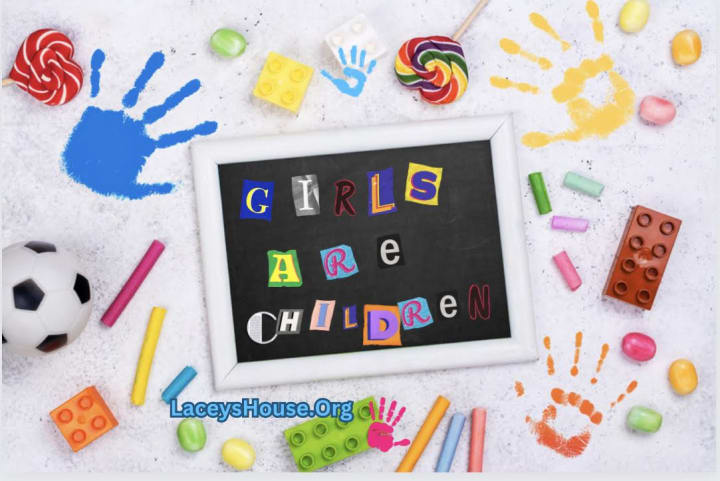
Burkina Faso - 109 out of 146
GENDER-BASED VIOLENCE
In June, the NGO Doctors Without Borders reported a rise in sexual violence in the regions affected by the conflict. Alleged cases of sex being exchanged for food aid by local NGOs facilitating IDPs’ access to humanitarian aid were documented by the media in the city of Kaya, Sanmatenga province, the province hosting the largest number of IDPs in Burkina Faso.
CHILDREN’S RIGHTS
Dozens of children were killed in attacks by armed groups against villages and towns. UNICEF reported that at least 20 children were killed during the attack on the town of Solhan in June, and hundreds were displaced with their families. Armed groups including GSIM, and the Islamic State in the Greater Sahara (ISGS) continued to recruit and use children to participate in hostilities, in violation of international humanitarian law.
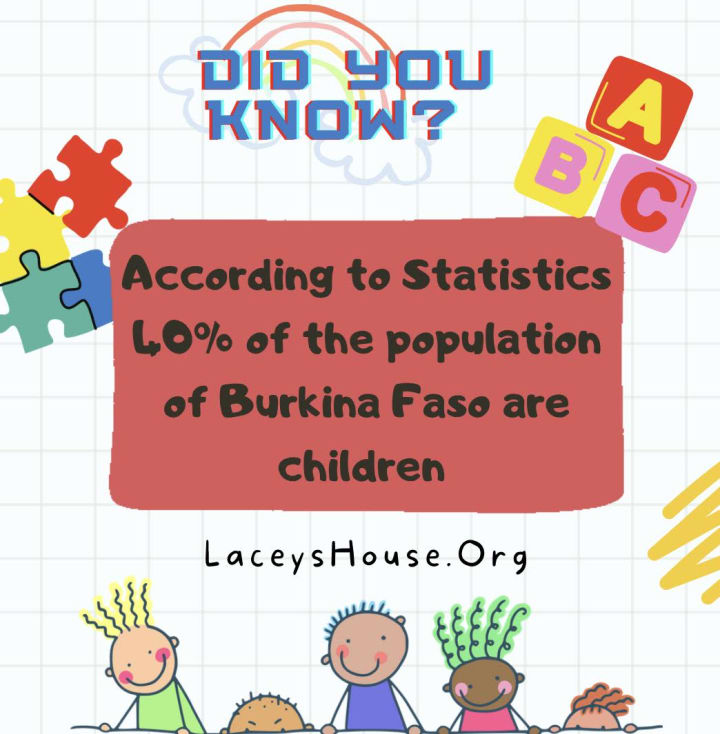
Mali - 141 out of 146
Mali and foreign soldiers allegedly raped several women during counterterrorism operations. There was little progress in investigations opened by the government into several of these incidents, and the authorities barred UN human rights investigators access to the locations of the abuses.
Violations of Children’s Rights
The UN reported that scores of children were killed or maimed by armed groups in Mali in 2022. Armed groups also recruited and used over 300 children as child soldiers. As of October 2022, insecurity forced the closure of 1,950 schools, leaving more than 519,300 children out of school.
Sierra Leone - 112 out of 146
‘Suffocating intimidation’: female politicians in Sierra Leone on sexism and abuse
As the country gears up for polls in June, women in politics speak out about refusing to be silenced despite the abuse and intimidation they face
When Femi Claudius Cole decided to form a political party, to address what she saw as Sierra Leone’s slow economic development and poor governance, she knew it would be tough. A former nurse, she had no experience in politics and people told her no one would vote for an unknown. But she could not have predicted quite how gruelling it would be: leaving her spending time in jail and fighting for her reputation.
The Unity party, registered by Cole in 2017, failed to win any seats in the 2018 general election. But she persevered, travelling around the country offering medical treatment with a surgeon, giving interviews and building up a social media following. In 2021 she co-founded the Consortium of Progressive Political Parties, an opposition alliance. “People thought that once I lost, I would disappear into thin air – they didn’t know me,” she says.
In July 2022, when women organising a rally to protest at the soaring cost of living asked for her backing, she agreed, allowing them to make placards in her office. They planned to dress in black and hold a prayer service. But the day before the rally, armed police surrounded Cole’s house.
“There were so many of them they blocked the whole street,” she says. The police told her she was being “invited” to answer questions at the Criminal Investigations Department.
Ivory Coast (Côte d'Ivoire) - 122 out of 146
According to UNFPA 48% of women between 20 and 24 in the Ivory coast do not gain education and 27% who had access to primary education were married or in union aged 18 compared to 9% of women who had secondary education or higher. More than one-third of Ivorian girls are forced into marriage before the age of 18.
The Gambia - 119 out 146
In pursuit of gender equality, the Gambia has ratified the Convention on the Elimination of All Forms of Discrimination Against Women and the Maputo Protocol and adopted the United Nations’ (2022) 2030 Agenda for Sustainable Development, whose Goal No. 5 – “achieve gender equality and empower women and girls” – underlies many of its other objectives as well.
At the national level, tools in the quest for gender parity and equal opportunity include the Women’s Act of 2010 and the Gender and Women’s Empowerment Policy 2010-2020, which the government has said is being updated (Dem, 2022; UNEP-LEAP, 2010)
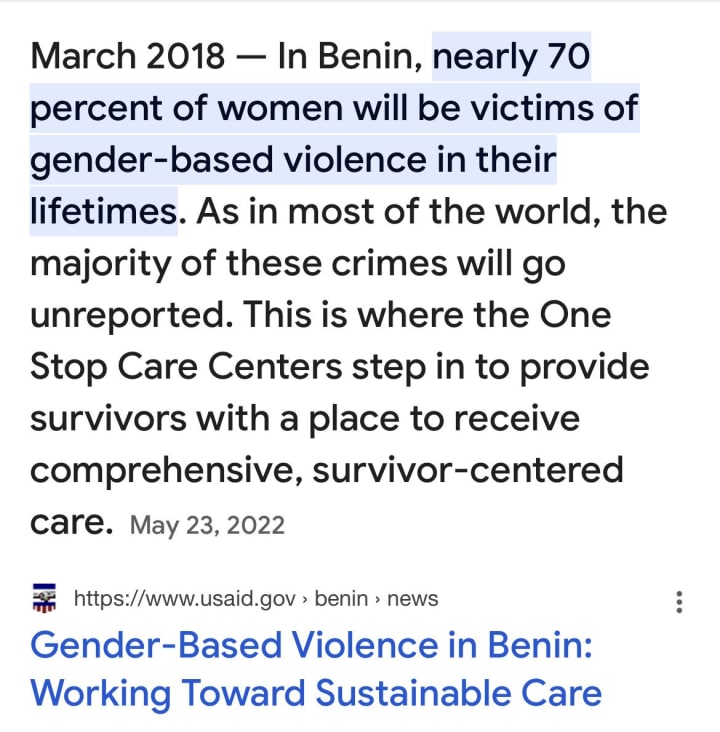
Benin - 138 out of 146
Prevalence Data on Different Forms of Violence against Women:Lifetime Physical and/or Sexual Intimate Partner Violence :23.8 % (1)
Physical and/or Sexual Intimate Partner Violence in the last 12 months : 13.9 %
Lifetime Non-Partner Sexual Violence : Official National Statistics Not Available
Child Marriage :30.6 % (3)
Female Genital Mutilation/Cutting :9.2 % (4)
Guinea - 137 out of 146
CONAKRY, May 9, 2023 - Women and girls in Guinea face significant barriers to accessing the same opportunities as men, according to a new World Bank report, Unlocking Women's and Girls' Potential: The Status of Women and Girls Relative to Men and Boys in Guinea". The report focuses on early family formation, a common phenomenon in the country with important implications for well-being and empowerment of girls and women.
Guinea, ranked 182 out of 191 in the United Nations Development Program's Gender Inequality Index in 2021, is one of the most unequal countries in the world in terms of gender. The economic consequences of this inequality are all the more alarming given that almost half of the rural population remains below the poverty line, nearly 2 in 5 children work, approximately 1 in 3 children under the age of five is stunted, and 1 in 10 dies before the age of nine.
The Gambia - 119 out of 146
THE GAMBIA (Tier 2)
The Government of The Gambia does not fully meet the minimum standards for the elimination of trafficking but is making significant efforts to do so. The government demonstrated overall increasing efforts compared with the previous reporting period, considering the impact of the COVID-19 pandemic, if any, on its anti-trafficking capacity; therefore The Gambia remained on Tier 2. These efforts included identifying significantly more victims and training officials on the NRM and standard victim identification procedures. The government convicted a sex trafficker for the first time in six years. However, the government did not meet the minimum standards in several key areas. Government shelter staff lacked trauma-informed training and restricted adult victims’ movement outside of the shelter.
Despite continued reports of fraudulent labor recruiters exploiting Gambian victims abroad, the government did not take steps to regulate international labor recruitment, including by imposing licensing requirements for recruitment agencies, and it did not hold any fraudulent recruiters accountable for fraudulent recruiting. Government agencies charged with combating trafficking continued to lack resources and training.
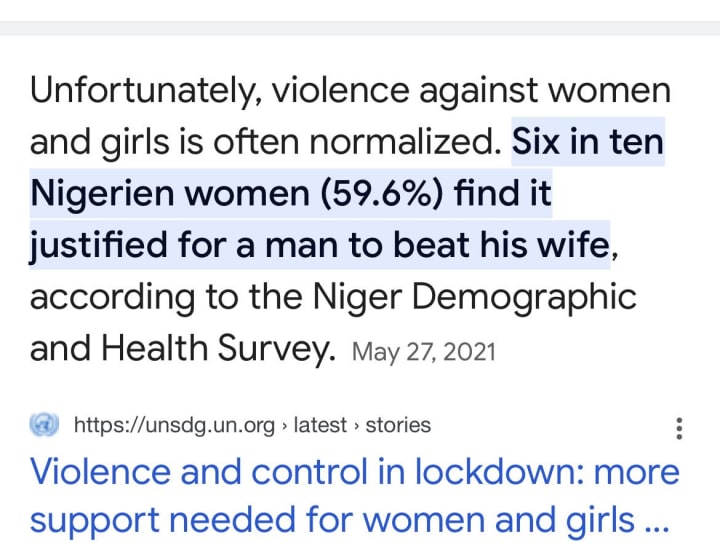
Niger - 135 out of 146
Prevalence Data on Different Forms of Violence against Women: Lifetime Physical and/or Sexual Intimate Partner Violence :Official National Statistics Not Available
Physical and/or Sexual Intimate Partner Violence in the last 12 months : Official National Statistics Not Available
Lifetime Non-Partner Sexual Violence : Official National Statistics Not Available
Child Marriage :76.3 % (1)
Female Genital Mutilation/Cutting :2 % (2)

Women in politics in West Africa
Women continue to face intimidation in when running for political races, in West African countries. Ghana, Nigeria, Sierra Leone, Senegal, Niger, Mali and Burkina Faso.
Senegal
Female representation in the cabinet is relatively poor. Women are better represented in the National Assembly, holding 73 seats and representing over 44 percent of the body after the 2022 legislative elections. This is partially due to a 2010 law requiring gender parity on candidate lists. Women's overall rate of participation in politics, such as voting and engaging in local political activities, is nevertheless lower than men's, and gender parity is less respected at the local level.
Due to high levels of discrimination and social stigma, LGBT+ people have no meaningful political representation.
The Gambia
Several groups in Gambian society encounter serious difficulties in exercising their human rights. Women enjoy less access to higher education, justice, and employment than men. Legal protections for people with disabilities require strengthening and enforcement. LGBT+ people face severe societal discrimination, and same-sex sexual relations remain criminalized. The constitution prohibits discrimination, but this "does not apply in respect to adoption, marriage, divorce, burial, and devolution of property upon death." Caste-based discrimination remains an issue in parts of the country.
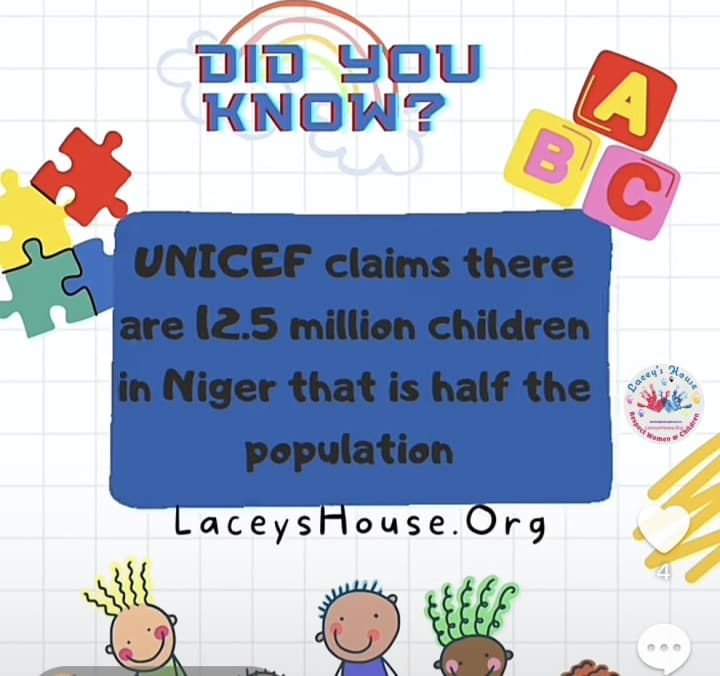
In West Africa, a Staggering Low Number of Women in Politics Is Brightened by One Exception
LAGOS — A mere 17 women were appointed or elected to parliaments, ministerial or electoral offices in the West Africa/Sahel region out of 134 available positions from December 2021 to June 2022. While the paltry figures have long raised concerns among the region’s women’s-rights advocates, the United Nations Secretary-General António Guterres also chimed in while reporting on the concerning security developments in the region to the Security Council recently.
“I note the continued underrepresentation of women in decision-making instances across the region,” Guterres said on July 7. “I reiterate the importance of promoting the full and meaningful participation and representation of women in all political processes, including in elections and transitions.” His remarks were based on a new report written by the UN’s Office for West Africa and the Sahel, or Unowas, for Guterres on the status of the region. The office covers West Africa, including parts of the Sahel within that geographical area (see the Unowas map below).
Despite West Africa being home to the continent’s first democratically elected woman president, Ellen Johnson Sirleaf, called the Iron Lady, who served two terms in Liberia after the civil war that ended in 2003, figures for women represented in politics throughout the region are staggeringly low. The 17 women appointed or elected in the last half year represent only 13 percent of entire appointments and elections globally, despite a 35 percent threshold set by the international community. Only the Americas are currently close to reaching that bar, at 34.4 percent. (In the United States House of Representatives, the percentage of women is currently 28.31 percent; in the Senate, 24 percent.)
©️TB Obwoge 2023 All Rights Reserved
About the Creator
IwriteMywrongs
I'm the president of a nonprofit. I've lived in 3 countries, I love to travel, take photos and help children and women around the world! One day I pray an end to Child Marriages, Rape and a start to equal Education for ALL children 🙏🏽


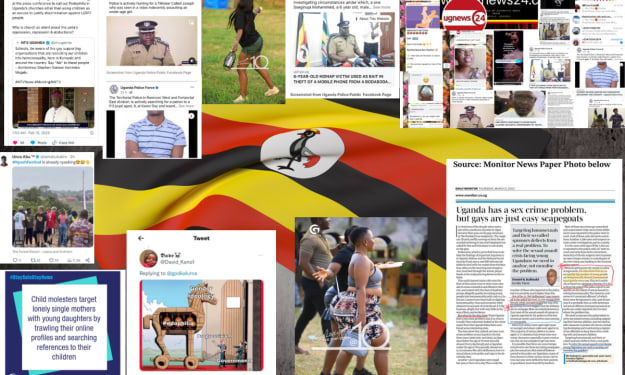



Comments (1)
Very Informative!